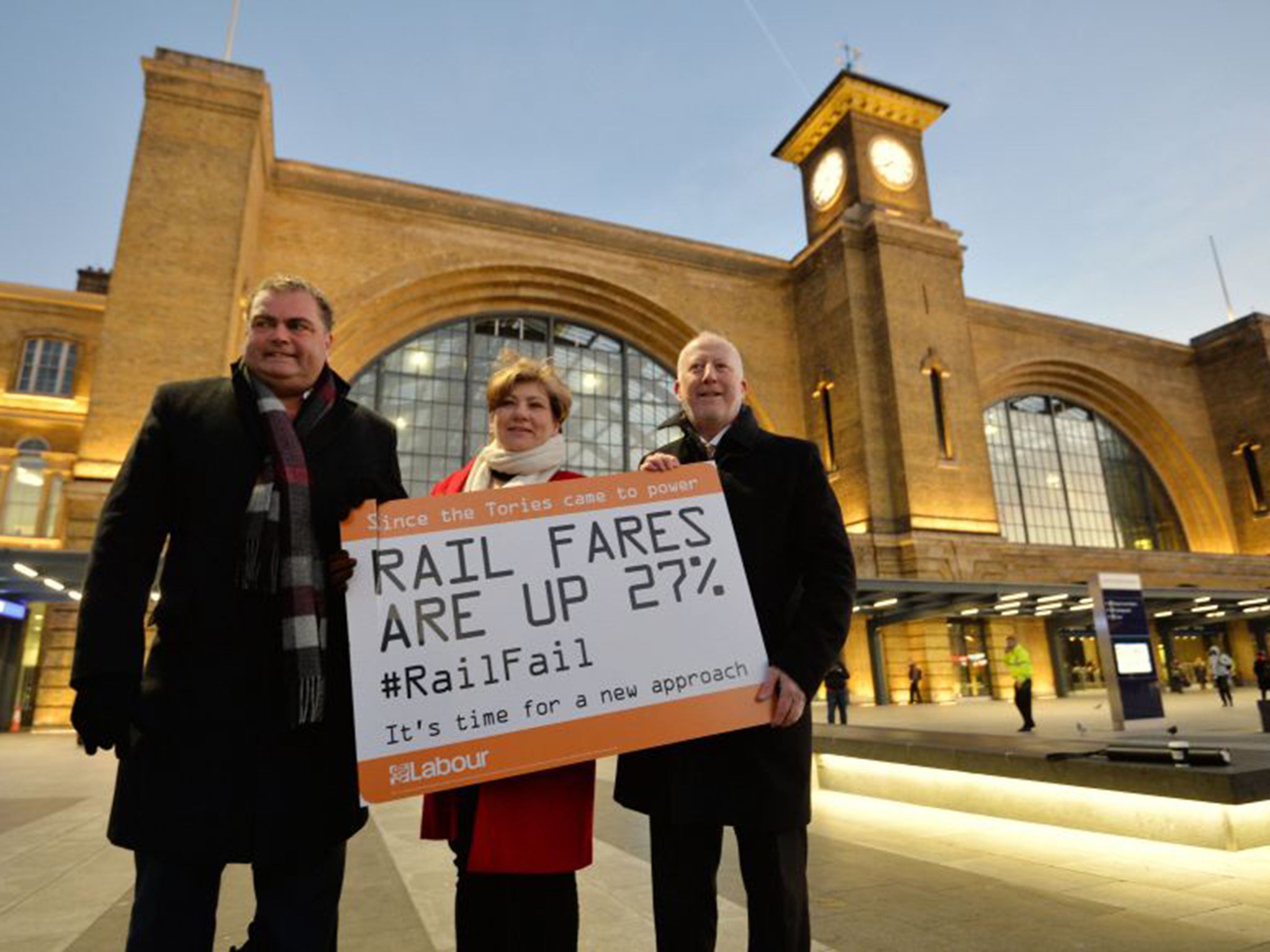Protests about ticket price rises hit hundreds of railway stations
The demonstrations were in response to an average price rise of 2.3 per cent

Your support helps us to tell the story
From reproductive rights to climate change to Big Tech, The Independent is on the ground when the story is developing. Whether it's investigating the financials of Elon Musk's pro-Trump PAC or producing our latest documentary, 'The A Word', which shines a light on the American women fighting for reproductive rights, we know how important it is to parse out the facts from the messaging.
At such a critical moment in US history, we need reporters on the ground. Your donation allows us to keep sending journalists to speak to both sides of the story.
The Independent is trusted by Americans across the entire political spectrum. And unlike many other quality news outlets, we choose not to lock Americans out of our reporting and analysis with paywalls. We believe quality journalism should be available to everyone, paid for by those who can afford it.
Your support makes all the difference.Campaigners gathered outside hundreds of railway stations across the country to protest about train fare increases.
The largest demonstrations were planned for King’s Cross in London, Glasgow Central and Manchester Piccadilly, but smaller protests took place elsewhere.
Three campaign groups, Action for Rail, Bring Back British Rail and We Own It, came together to organise two days of action in response to an average price rise of 2.3 per cent for most passengers.
Analysis from Action for Rail, said passengers are spending six times more on fares than those in Europe. Those commuting to London from Luton pay on average £387 a month.
Passengers in Paris or Rome would pay £61 for a similar journey over the same period.
Samuel Tarry, the national political officer for the Transport Salaries Staff’s Association (TSSA), which is part of the Action for Rail coalition, told The Independent it was time to put passengers ahead of profit.
“Rail fares here are now six times higher than the rest of Europe, with many passengers paying over a month’s salary just to get to work," he said. "It's time for a rail system that puts people before profit, and instead of shareholders or the Governments of other European companies benefiting at our expense, we should take back public control of our railways for the benefit of the British commuters."
TSSA General Secretary Manuel Cortes added that any profit should be reinvested to ensure cheaper fares and upgrades for passengers.
"It's high time we stopped this annual rip-off of our passengers and take back control of our train companies for the British taxpayer,” he said.
But Transport Secretary, Chris Grayling insisted "wages are growing faster than regulated fares."
The government's "commitment to cap regulated fares in line with inflation will save annual season ticket holders an average £425 in the five years to 2020," he said.
“To improve services, we are investing more than £40billion into our railways," he added. "This will provide passengers with better trains that are faster and more comfortable.
"We are delivering the biggest rail modernisation programme for more than a century, providing more seats and services. We have always fairly balanced the cost of this investment between the taxpayer and the passenger. On average, 97% of every £1 of a passenger's fare goes back into the railway.”
Subscribe to Independent Premium to bookmark this article
Want to bookmark your favourite articles and stories to read or reference later? Start your Independent Premium subscription today.
Join our commenting forum
Join thought-provoking conversations, follow other Independent readers and see their replies
Comments